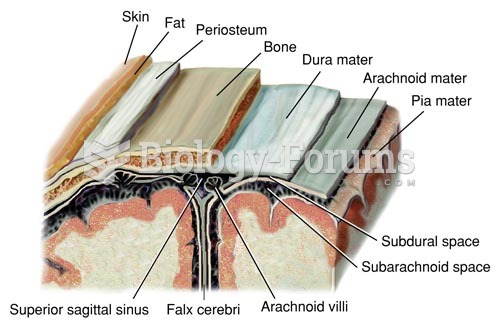|
|
|
People with high total cholesterol have about two times the risk for heart disease as people with ideal levels.
Drying your hands with a paper towel will reduce the bacterial count on your hands by 45–60%.
Essential fatty acids have been shown to be effective against ulcers, asthma, dental cavities, and skin disorders such as acne.
Blood in the urine can be a sign of a kidney stone, glomerulonephritis, or other kidney problems.
A serious new warning has been established for pregnant women against taking ACE inhibitors during pregnancy. In the study, the risk of major birth defects in children whose mothers took ACE inhibitors during the first trimester was nearly three times higher than in children whose mothers didn't take ACE inhibitors. Physicians can prescribe alternative medications for pregnant women who have symptoms of high blood pressure.







